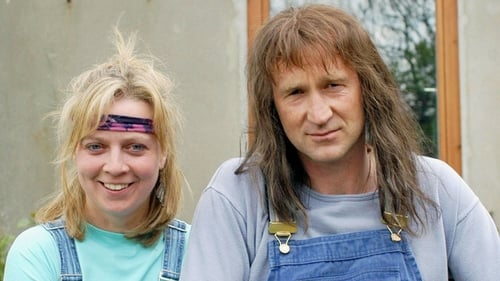
Opa
1986 - The protest movement against the construction of the nuclear power plant in Brokdorf is on its last legs. Only one rural commune remains: the "Alternative Wohnkollektiv Regenbogen". For them, it could go on and on with endless consensus discussions, shearing sheep and naked communal bathing. One day, the lowland communards are joined by two city dwellers, Hanne and her son Niels. While Hanne gets used to scream therapy and raising vegetables surprisingly quickly - and even more quickly to the tantra games with commune guru Peter - Niels has less and less desire for the dogmatic commune rules. Out of defiance, he joins the violent nuclear power plant resistance, thus upsetting the tranquil chaos of the commune. The big bang, however, comes when a reactor explodes in distant Chernobyl. Exactly on the day Bobby Ewing dies, the petroleum prince from "Dallas" and series favorite of the commune.

Moritz Petri
Iranian director Sohrab Shahid Saless has succeeded in taking on an unusual project — the life and times of a German literary figure — and making it interesting. Christian Dietrich Grabbes lived a very short life in the first half of the 19th century and is primarily known for his satire, skepticism, basurd theater and the fact that he presaged the Postmodern movement in literature. Hannibal and Don Juan and Faust are two of his better-known works. In this docudrama, his Comedy, Satire, Irony and Deeper Meaning is featured partly because it gives a drubbing to the icons of German thought that had a stranglehold on the creative process. One memorable moment in this three-and-a-half-hour story is when the alcoholic writer is caught in the throes of delirium and comes around to see his own mother as a figure of death. The irony is that an Iranian director could capture the spirit and age of a German writer so well

